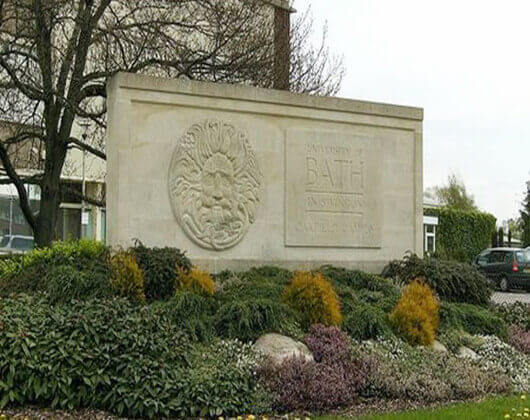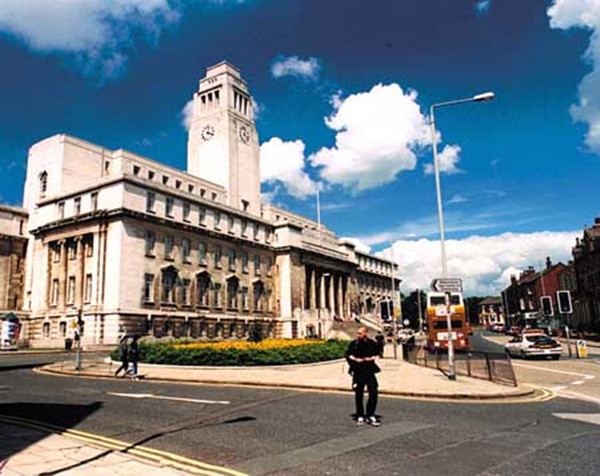Core modules CONFERENCE INTERPRETING This module introduces you to interpreting in formal conference scenarios in consecutive and simultaneous mode. After an introduction to advanced skills in concentration, memory, message analysis and split attention, you will learn note-taking techniques in consecutive interpreting, and you will practise sight translation as well as simultaneous interpreting in the booth. PUBLIC SERVICE INTERPRETING This module introduces you to public service interpreting in the fields of health and law. Following targeted introductions to the subject areas and topics covered, you will practise public service interpreting in simulated situations. MAIN LANGUAGE INSTITUTIONAL TRANSLATION (INTO YOUR FIRST LANGUAGE) You will be introduced to specialist texts of the kind you will be expected to handle in a professional context. These will cover international and government institutions, as well as the fields of economics, finance, business, politics and law. MAIN LANGUAGE TECHNICAL TRANSLATION (NATIVE SPEAKERS OF ENGLISH ONLY) You will be introduced to a wide range of specialist texts relating to technology and science of the kind you will be expected to handle in a professional context. SECOND LANGUAGE INSTITUTIONAL TRANSLATION (NATIVE SPEAKERS OF CHINESE, FRENCH, ITALIAN, POLISH OR SPANISH ONLY) This module differs from the main language module only in that you will be translating into English as a second language for information purposes. MA INTERPRETING PROJECT OR MA TRANSLATION PROJECT OR MA THESIS The MA Interpreting Project is an extended piece of work of 12,000 - 15,000 words, which aims to help you reflect on and apply theoretical models to your practice as a trainee interpreter. The project is divided into three parts: a reflective report logging your learning process during the MA, an error analysis of a portfolio of three speeches you have interpreted throughout the year, and a rhetorical analysis of one of these speeches. Preparation for the project will be provided in a series of workshops throughout the year. Alternatively, you can do an MA Translation Project, a 6,000 - 8,000-word extended translation on a subject of your choice, accompanied by a preface and a set of annotations on the translation challenges involved. Preparation for writing the preface and annotations will be provided by a series of lectures throughout the course. you can also choose to do an MA Thesis. This is a piece of scholarly research, 12,000 - 15,000 words long, on a translation- or interpreting-related topic. In preparation for writing your Thesis, you will attend regular research methodology and work-in-progress sessions. Regardless of your choice of Project or Thesis, you will also receive individual supervision. Option modules ADVANCED ENGLISH LANGUAGE SKILLS FOR INTERPRETERS (NATIVE SPEAKERS OF CHINESE, FRENCH, ITALIAN, POLISH OR SPANISH ONLY) This module will help you develop and perfect your oral English language skills through activities that address specific interpreting issues and through speech writing and delivery. The module will also cover rhetorical analysis of a variety of speeches to determine their characteristic features. COMPUTER-ASSISTED TRANSLATION (CAT) The CAT module will introduce you to the basic features of computer-assisted translation (translation memory and machine translation), and provide practical experience of some common tools currently available. EDITING: PRINCIPLES AND PRACTICE This module will introduce you to the skills of translation criticism and quality reporting, translation editing and revision, post-editing and proof reading. INTERCULTURAL COMMUNICATION You will be introduced to the different theories of the nature of cross-cultural interaction and of intercultural competence. The module also looks closely at the application of these theories to specific issues in professional contexts, such as translation, cross-cultural skills and knowledge transfer, and the cross-cultural implications of globalisation. INTRODUCTION TO AUDIOVISUAL TRANSLATION The module will introduce you to the subject of audiovisual translation and includes hands-on translation experience and training in how to use subtitling software. MAIN LANGUAGE TECHNICAL TRANSLATION (NATIVE SPEAKERS OF FRENCH, ITALIAN, POLISH OR SPANISH ONLY) You will be introduced to a wide range of specialist texts relating to technology and science of the kind you will be expected to handle in a professional context. SECOND LANGUAGE TECHNICAL TRANSLATION (NATIVE SPEAKERS OF FRENCH, ITALIAN, POLISH OR SPANISH ONLY) You will be introduced to a wide range of specialist texts relating to technology and science, translating into English as a second language for information purposes. SOCIOLINGUISTICS This module will cover concepts and issues in sociolinguistics, such as class, gender, ethnicity, multilingual communities, language variation, choice, planning, change, decline and death, and language in face-to-face interaction. SUBSIDIARY LANGUAGE (LANGUAGES SUBJECT TO ANNUAL CONFIRMATION) Over the year, you will be introduced gradually to a language that is cognate with your main language. You will gain an overview of the language based on grammar and syntax, and source language texts. As the year progresses, you will learn to translate graded technical and non-technical texts. TRANSLATING CULTURES This module opens up the understanding of 'translation' to include the transmission and interpretation of values, beliefs, histories and narratives not only across linguistic, cultural or geographical boundaries, but also, for example, from one medium or time period to another. By reading the works of key theorists from around the world in the intersecting fields of translation and cultural studies, the module aims to enhance students' understanding of how historical and contemporary cultural interactions can be examined through a translational paradigm. UNITED NATIONS AND EUROPEAN UNION FOR LINGUISTS This module will equip you with a detailed knowledge and understanding of the structures and functioning of the UN and EU. In particular, it aims to explain the role of the main institutions of the UN and EU and their interaction with national governments, and the role of professional linguists in these processes. ANALYSING SPOKEN AND WRITTEN DISCOURSE This module will introduce you to the theories of genre and discourse analysis; audience design, purpose and style; rhetoric and persuasion; text-types, text structures, and grammatical and lexical features. Texts are selected from a wide range of sources, typifying different styles, levels of formality, registers, audiences, purposes and specialisations.
 日本
日本
 韩国
韩国
 英国
英国



























